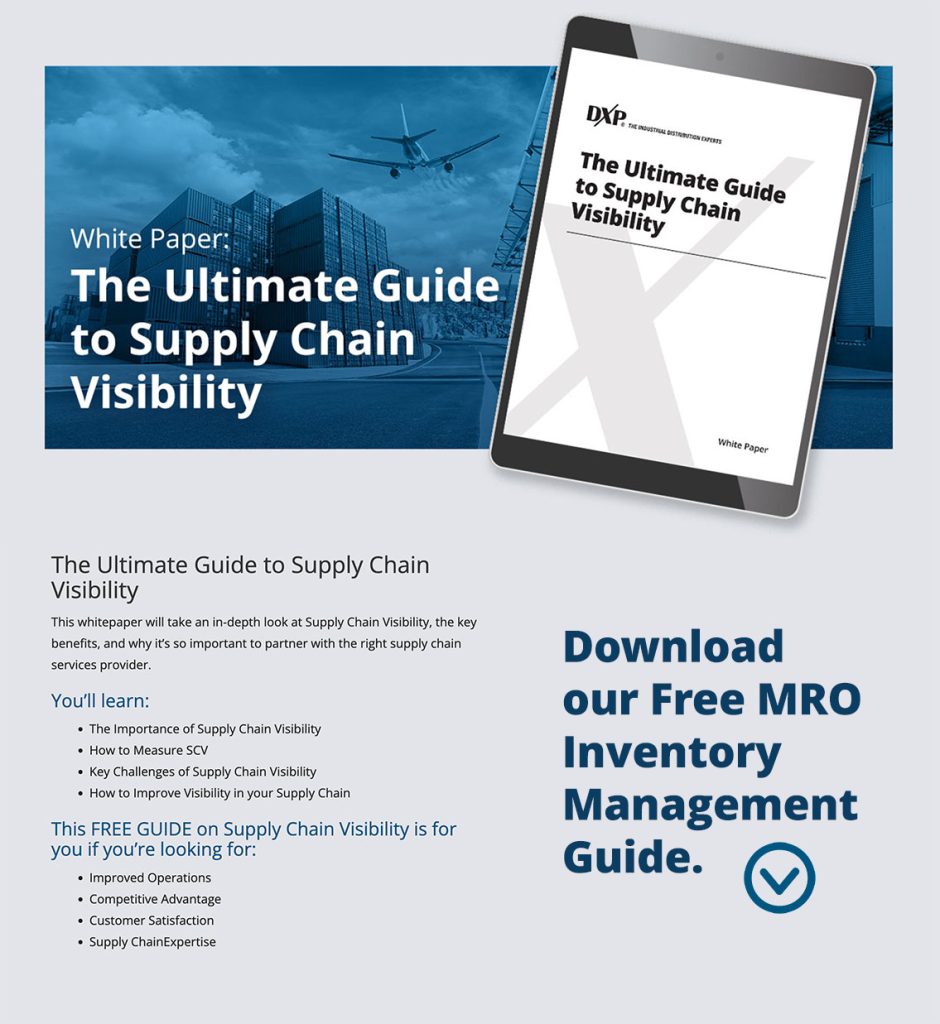
The Overwhelming Need for Spare Parts Management
All manufacturing processes depend on an assortment of machinery and equipment to create top-quality finished items. While these machines make their associated processes more efficient by improving productivity, saving costs on manpower, and reducing material waste, they are prone to wear and tear with prolonged use.
Consequently, the need for replacement parts is an unavoidable issue all manufacturing business administrators and managers need to consider when sizing their operational budgets. This often-overlooked aspect of production metrics can prove to be a significant source of resource waste when improperly managed.
In this article, we will highlight the importance of having a critical parts management plan as well as illustrate how to create one.
What Are MRO Spare Parts?
MRO spare parts are critical backup components of the industrial equipment used in manufacturing processes. These replacement items are selected from a broader range of machine components after careful consideration of the components that are indispensable to the smooth manufacturing processes.
A failure of the corresponding factory-installed machinery components will cripple production activities, resulting in costly equipment downtime. Having readily available MRO spare parts in storage minimizes the negative effects of lengthy equipment inactivity as maintenance techs have immediate access to replacement items and can quickly fix faulty machinery.
What Is Spare/Critical Parts Management?
Spare parts management refers to coordinated activities that ensure suitable replacements for critical machinery components are readily available when needed. Conducting a critical equipment analysis allows plant managers to draft a critical spares list which effectively pre-empts possible equipment failure and streamlines the spare parts ordering process to match material consumption rates.
A good spare parts management process boosts the efficiency of production and minimizes material and storage waste.
How to Determine if a Part Is a Critical Spare?

To prevent stockpiling unnecessary equipment components, spare parts managers must accurately determine what qualifies as a “critical spare.” According to a basic definition, categorizing spare parts as critical should be a straightforward process as any item whose failure leads to a machinery breakdown is usually classified as a critical spare.
Other variables that make an equipment component critical spare are:
- If the affected part is quite costly to purchase
- When the component’s failure results in significant downtime
However, the status of a critical spare is not static as manufacturing technology is constantly evolving. As a result, the designation of a “critical part” might change as it becomes obsolete with the development of newer, more efficient components that perform the same function in process equipment.
Factors Affecting Spare Parts Inventories
When considering the types of spare parts to include in critical item inventory, plant managers must consider the following factors:
- Inventory control
- Operating strategy
- Stockout sources
- Lead time for restocking
Inventory Control
An effective critical spare strategy is one that captures the most critical items only. Keeping an exhaustive inventory of spare items is an impractical and unnecessarily costly approach to critical part management. To prevent the accumulation of redundant or obsolete components, inventory managers must regularly reassess the items in their stores and adjust their procurement plans accordingly.
Contact a DXP representative about our storeroom management services for help with this aspect of spare parts management.
Operating Strategy
Many MRO spare parts managers reactively structure their purchasing strategy ordering the necessary items when equipment failures occur. This is strategy might backfire causing costly downtimes if any difficulties are encountered in purchasing critical spares.
A more effective MRO purchasing strategy involves predicting future needs for critical parts by collecting and analyzing data from operational records. With the right information, store managers can efficiently control the consumption of stores and spare parts.
Stockout Sources
A significant cause of concern for inventory managers is the ever-present possibility of a stockout. Rapidly identifying the reasons materials go out of stock will allow managers to mitigate the effects they have on production operations.
Lead Time for Restocking
For operations where downtime is undesirable, understanding the lead time it takes to restock depleted spares is particularly important. To prevent lost production time from equipment failure, critical parts that take a long time to restock must be identified and acquired at an earlier date than others for critical parts lead time reduction and easily accessible components.
Benefits of Spare Parts Management
Having comprehensive spare parts management plans offers several benefits to the businesses that apply them. The key advantages of operating a spare parts business strategy include:
- Optimization of the spare parts purchasing process
- Reduction in costly equipment downtime
- Elimination of redundancies and obsolete components
- Cost-effective resource usage
How to Create a Spare Parts Management Plan
There is no fixed model when it comes to creating an effective critical parts plan. Each part manager must take into consideration the unique nature of their operation. Some general considerations will include:
- Defining what constitutes a critical part
- Data collection, analysis, and integration
- Creation of stable restocking strategy
DXP Can Provide Reliable Managed Inventory Solutions
At DXP, we offer refined business solutions to a broad client base. Our technologies are applicable in a diverse range of industries including aviation, agriculture, food, and beverage manufacturing.
Among the unique services we provide are highly effective vendor managed inventory services tailored to fit each unique production model. For businesses seeking to gain a competitive edge in today’s highly competitive business climate, DXP is the right fit.
Contact a DXP representative today to learn more about the services we offer.

